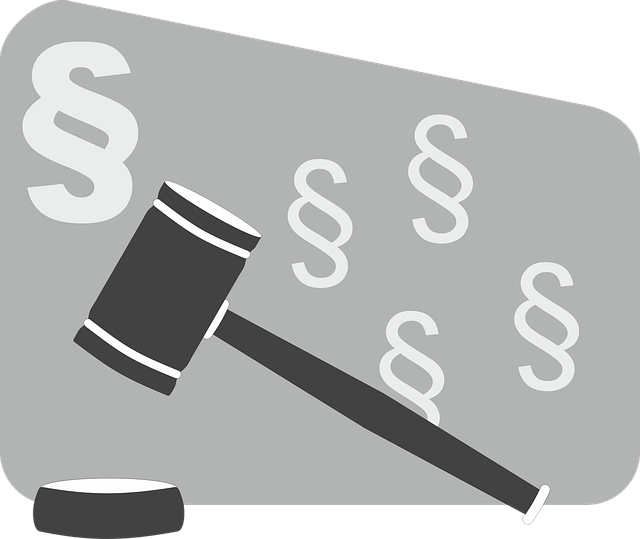Consumer protection laws safeguard against unfair practices, ensuring Financial Regulatory Compliance in transactions. Proactive legal defense strategies, including internal audits, employee training, and transparent communication, mitigate risks in consumer protection suits. Mastering Financial Regulatory Compliance Litigation Strategies is vital for navigating complex regulatory disputes, focusing on civil penalties to deter future violations without incriminating individuals.
Consumer protection suits are an essential pillar of modern financial systems, safeguarding individuals from unfair practices. This article delves into critical aspects of consumer protection laws and their far-reaching impact. We explore strategic legal defenses for financial cases, providing insights on preemptive measures to mitigate risks. Additionally, we discuss effective litigation tactics tailored for complex regulatory disputes, emphasizing the importance of comprehensive financial regulatory compliance litigation strategies. Understanding these approaches is vital for both consumers and businesses navigating the intricate landscape of consumer protection.
- Understanding Consumer Protection Laws and Their Reach
- Strategies for Preemptive Legal Defense in Financial Cases
- Effective Litigation Tactics for Complex Regulatory Disputes
Understanding Consumer Protection Laws and Their Reach

Consumer protection laws are a vital framework designed to safeguard individuals from unfair practices and ensure Financial Regulatory Compliance in various transactions. These laws cover a broad spectrum, including but not limited to, product safety, advertising integrity, and transparent pricing. Understanding the reach of these regulations is crucial when navigating high-stakes cases involving white collar and economic crimes. Businesses and individuals must be adept at employing effective litigation strategies to mitigate risks and ensure adherence to these standards.
In the realm of consumer protection suits, general criminal defense tactics can prove invaluable. Skilled attorneys play a pivotal role in interpreting complex legal landscapes, negotiating settlements, and representing clients in court. The success of these efforts lies in staying abreast of evolving legislation and adapting litigation strategies accordingly. This proactive approach not only helps resolve disputes efficiently but also demonstrates a commitment to ethical business practices, fostering trust among consumers and fostering a more robust economy.
Strategies for Preemptive Legal Defense in Financial Cases

In the realm of Consumer Protection Suits, a proactive approach to legal defense is often key to mitigating risks and avoiding costly litigation. For his clients, particularly in the financial sector, implementing robust Financial Regulatory Compliance strategies serves as a powerful shield against potential lawsuits. This involves a multifaceted approach, including rigorous internal audits, comprehensive employee training on regulatory updates, and establishing transparent communication channels with stakeholders. By fostering a culture of compliance, institutions can minimize the risk of non-compliance that often leads to legal disputes.
Additionally, developing solid litigation strategies from the outset is paramount. This entails staying abreast of relevant case laws, anticipating potential legal challenges, and designing robust protocols for document retention and evidence management. For corporate and individual clients alike, these preemptive measures not only help in avoiding indictment but also ensure that any issues are addressed promptly, reducing the likelihood of escalating into full-blown Financial Regulatory Compliance Litigation Strategies.
Effective Litigation Tactics for Complex Regulatory Disputes

In the realm of complex regulatory disputes, particularly involving financial institutions, effective litigation tactics are paramount. One of the key strategies is to navigate the intricate web of Financial Regulatory Compliance. This involves meticulous preparation and a deep understanding of the regulatory landscape, ensuring every aspect of the case aligns with legal standards. By employing robust evidence collection methods and expert witness testimonies, plaintiffs can showcase violations effectively.
Moreover, distinguishing these suits from general criminal defense is essential. While similar in nature, Financial Regulatory Compliance Litigation Strategies focus on civil penalties and remedies, holding entities accountable for their actions without aiming to criminalize individuals. This approach, tailored for white collar and economic crimes, allows for a more targeted resolution, serving as a powerful deterrent for future violations.
Consumer protection suits are a vital component of ensuring fair practices in the financial sector. By understanding the scope of consumer protection laws and employing robust legal strategies, institutions can proactively manage risks. This includes preemptive defenses tailored to financial cases and effective litigation tactics for complex regulatory disputes. Through these measures, organizations can navigate the intricate landscape of Financial Regulatory Compliance, fostering a more transparent and trustworthy environment for all stakeholders.






